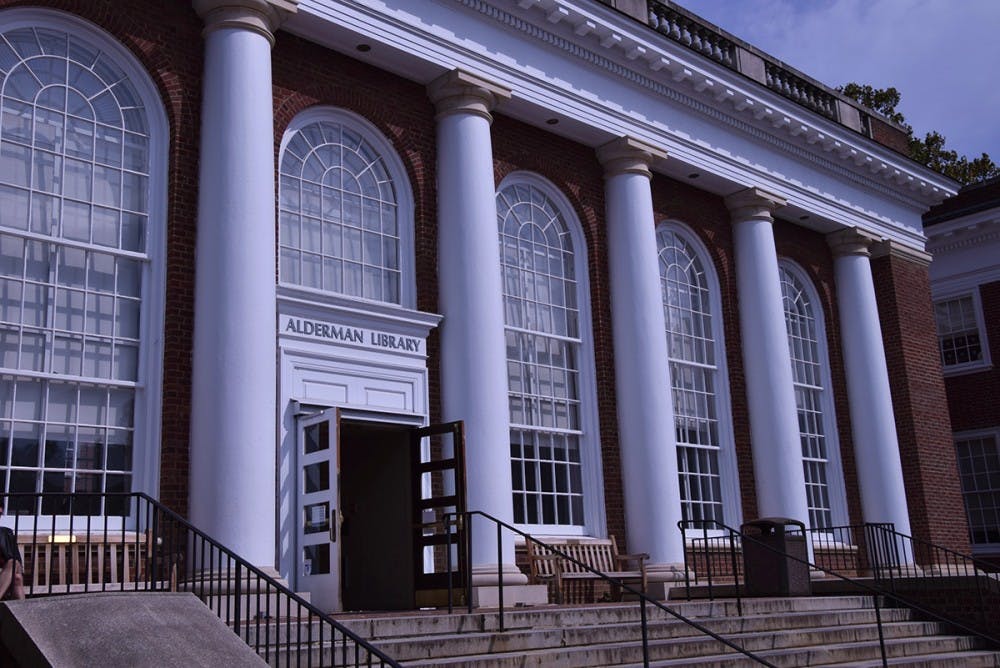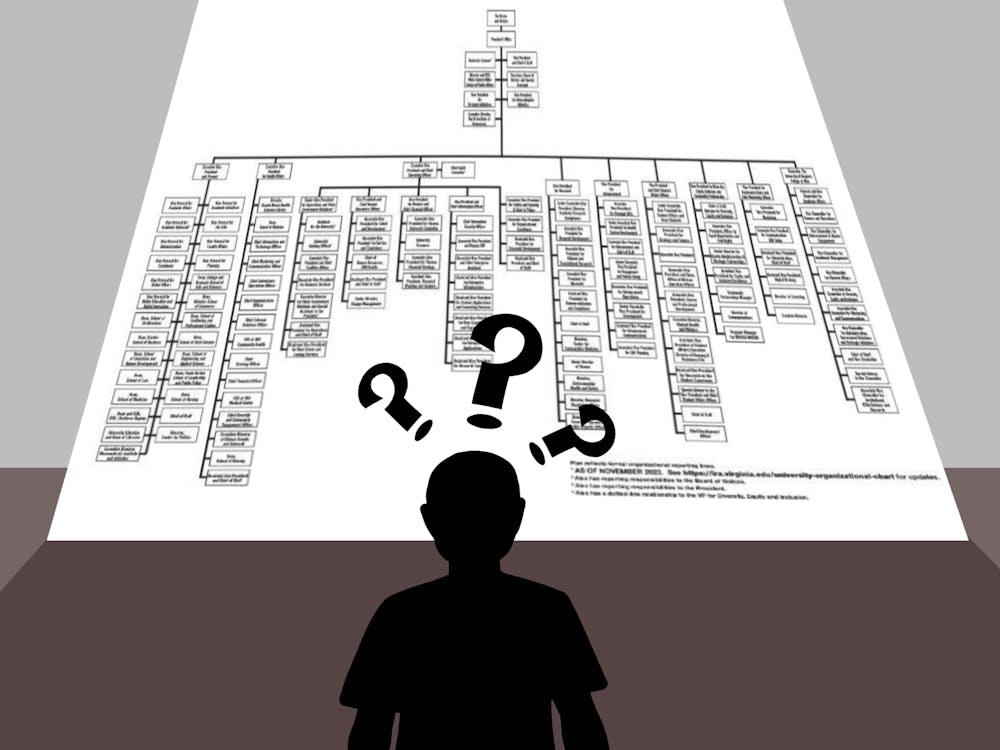Sitting prominently in the northwest corner of Central Grounds — directly adjacent to Jefferson’s academical village — Alderman Library serves as a reminder of the University’s distinguished historical status. In contrast to the early 1980s architecture of Clemons Library, Alderman’s classic aesthetic style dating back to 1938 has withstood the test of time. Even more worth preserving than the building’s traditional facade, however, are the centuries of accumulated print material that lay inside.
During the last academic year, the University announced its plans to renovate Alderman Library beginning in 2020. The current renovation plans include the designation of large areas of the library to student study spaces and terraces on the north side of the building overlooking University Avenue. These additions come at a cost. The $160 million renovations require the destruction of both the old and new stacks, which currently house a major portion of the University’s print collection.
Calculations of the extent of the print reduction vary — with the earliest plan predicting the loss of print material to be between 30 and 60 percent. A recent memo sent by Libraries Dean John Unsworth to the Board of Visitors refutes this number following significant community backlash, citing the decrease in books on shelves accessible to students to be limited to a mere 18 percent. In another contradictory estimate put forth by University alumnus and visiting scholar John Bugbee, the actual loss would be much closer to 44 percent. Despite these concerns, the Board of Visitors Buildings and Grounds Committee recently approved the original schematic designs.
Until the discrepancy between these competing figures can be reconciled, University and community members should be alarmed by the potential loss to our intellectual capacities. Before plans reach the Virginia General Assembly in 2019 a renewed push against significant cuts in the University’s print collection is due, especially given that access to archival material is a cornerstone of rigorous university-level research.
The most immediately pressing reason to maintain an accessible and robust print collection arises in our national prestige as a research university. A recent petition aiming to conserve Alderman shelf space raises the University’s status as a nationally recognized research university as the paramount reason to limit the cuts. The petition, which has amassed over 500 signatures from various University and community members, conjectures the potential intellectual damage that will accompany the drastic reductions. Without access to an extensive print collection, the University would be “less able to recruit and retain faculty and students by putting us at a marked disadvantage with other R1 universities that have chosen instead to maximize immediate access to their on-site print collections.”
Speaking more broadly — if all universities were to abandon the majority of their print collections in favor of electronic copies, as appears to be the recent trend, the consequences could be catastrophic. Digitized materials are far more vulnerable to erasure than print materials, which have a longstanding history of preservation and maintenance. In contrast, according to a report conducted by Georgetown University Law Center, “the transitory nature of technology renders access to digital documents unpredictable.” Ever-changing patterns of technological development make digitized databases allusive and quickly outdated.
As electronic databases continue to outsource printed resources, even the storage of documents is likely to be deemed extraneous and cost inefficient. As the world’s published material becomes increasingly digitized en mass, print material that has yet to be converted runs the risk of being overlooked. Many of history’s physical documentations have yet to be transferred to an electronic form — thus, until vast efforts have been undertaken to gather and protect electronic material, we must not shrink our print collections.
With several designated study areas available to students on and off Grounds, the renovation of Alderman Library to exclude the stacks is unnecessary, costly and potentially detrimental to the University’s national reputation. Libraries at universities should remain just that: Libraries — places to house print collections for scholarly research. The growing movement to digitize research material poses existential threats to the future of the world’s print collections and requires tremendous effort to carry out and maintain. For all of the reasons cited above the University community should make a renewed effort to push back against the renovation plans before their pending approval by the Virginia General Assembly in 2019.
Charlotte Lawson is an Opinion Columnist at The Cavalier Daily. She can be reached at opinion@cavalierdaily.com.





